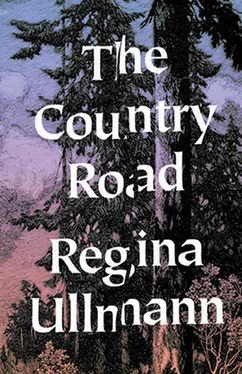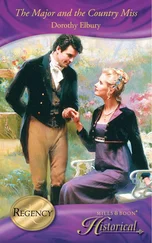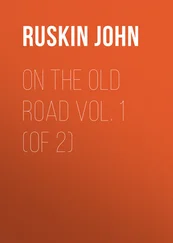Regina Ullman - The Country Road
Здесь есть возможность читать онлайн «Regina Ullman - The Country Road» весь текст электронной книги совершенно бесплатно (целиком полную версию без сокращений). В некоторых случаях можно слушать аудио, скачать через торрент в формате fb2 и присутствует краткое содержание. Год выпуска: 2015, Издательство: New Directions, Жанр: Классическая проза, на английском языке. Описание произведения, (предисловие) а так же отзывы посетителей доступны на портале библиотеки ЛибКат.
- Название:The Country Road
- Автор:
- Издательство:New Directions
- Жанр:
- Год:2015
- ISBN:нет данных
- Рейтинг книги:5 / 5. Голосов: 1
-
Избранное:Добавить в избранное
- Отзывы:
-
Ваша оценка:
- 100
- 1
- 2
- 3
- 4
- 5
The Country Road: краткое содержание, описание и аннотация
Предлагаем к чтению аннотацию, описание, краткое содержание или предисловие (зависит от того, что написал сам автор книги «The Country Road»). Если вы не нашли необходимую информацию о книге — напишите в комментариях, мы постараемся отыскать её.
, largely set in the Swiss countryside, the archaic and the modern collide, and "sometimes the whole world appears to be painted on porcelain, right down to the dangerous cracks." this delicate but fragile beauty, with its ominous undertones, gives Ullmann her unique voice.
The Country Road — читать онлайн бесплатно полную книгу (весь текст) целиком
Ниже представлен текст книги, разбитый по страницам. Система сохранения места последней прочитанной страницы, позволяет с удобством читать онлайн бесплатно книгу «The Country Road», без необходимости каждый раз заново искать на чём Вы остановились. Поставьте закладку, и сможете в любой момент перейти на страницу, на которой закончили чтение.
Интервал:
Закладка:
Then we looked at the little wagon. And we found that gravel belonged with gravel, so we emptied it out.
And then, with effusive eagerness, we covered the empty bottom of the wagon with leaves. And there was one strawberry and then another and soon it was red upon red. And when we were tired and squatting like little hares, unable to continue, late afternoon had already come to the world outside. The evening street was clear upon clear. Every door was a mouth, every window a face, and all at once we felt that all the gardens were open to us. Suddenly we were afraid. We were still alone. Then we rose, and the little wagon followed, what else could it have done. . We guarded it carefully against tipping over. I can still remember the way that someone looked down at us from a closed window, astonished and curious. But it was unthinkable that the strawberries did not belong to us, if we were pulling them home so openly in our wagon. We could see that in the person’s face. But we were like thieves in the night, our appearance betrayed nothing. Even if someone had suddenly asked us: “Who are you, and what have you done here,” it could not have startled us out of our dream-sure wakefulness. We had truly forgotten ourselves, were no longer real. Our knowledge was no knowledge at all. So we returned home.
We were happy to find that there was no one in the rooms, and we could fill the empty platters on the credenzas. The evening sun was shining. The bird was ruffling itself in the water. The clock began to chime. It passed. We didn’t count its strokes. We, too, had left the room. I don’t remember anymore if we stood with the maid in her freshly pressed apron as she dangerously waved the clothes iron, if we slid down the banister, or joined one of the animated evening games that the children played in the alley outside. But in the end we forgot, and became like the others.
And we returned home so untroubled and refreshed that it must have been a joy.
Not a breath reminded us of what had happened. Everything was just as usual, and we sat in our usual places.
But what shock, what silent shock: no soup was served, no vegetables, not even a piece of bread for each of us, but only three plates full of strawberries. We knew them, we knew them well. And each of us ate, bent over, doing our solemn duty. We didn’t look at each other’s hands, nor at each other’s faces. Even our mother spoke not a word, but simply ate her portion along with us. No accusation, no sharp “You’d better be full now!” which we had truly earned; no “If and but. .”
The room now smelled as if it truly held a garden. . Our hands were red, since there were no spoons on the table, and none of us had been bold enough to fetch them.
But there was also no judgment, hidden and waiting somewhere. With this meal, everything seemed to be atoned for. The night was there, like a large, soft field of pansies. We went to sleep there, tired and without a thought.
And mother was mother and children remained children, mercifully spared.
The Hot Air Balloon
It was a very sunny day when the hot air balloon was to take flight. It didn’t even look foolish to stretch your arms out as if to touch it; sometimes the whole world appears to be painted on porcelain, right down to the dangerous cracks.—
The green was already showing on all of the trees and shrubs, but only at the very tips — as if a green hand had brushed over them — and Easter wasn’t far off anymore, such thoughts could cross one’s mind.
It had to be a very bright and windless day for the balloon to take off. I don’t know if the others cared, the important people with their children and their servants. But it mattered quite a bit to our mother; she thought everyone should be able to go along to the launch. Just imagine climbing up with that captive air, higher than all the mountains where the gentians bloom, above the edelweiss. My God! it was certainly dangerous. Perhaps even sinful, she reflected. And all at once the earth seemed to grow dark. It was certainly dangerous. . What if the balloon were stranded over the sea, forever and ever, until its pilot died of grief and fell down like a little rag, alone, with the balloon still hanging in the sky. . Children certainly believe that it is possible to see everything beyond death. There is a place inside them that is not like a picture just drawn on paper. If we could hold onto that love that feels so alive in childhood, we would be the truest sort of magicians. We would learn: Never to die. A sound would still carry over, across the waters of death, and whoever approached the shore and gazed across would see only water lilies blooming. That was how we thought of the balloon. We thought of it with our Sunday clothes and with our arms and with our faces.
The voices reminded us of it, and so did the whole wide Sunday world. People were streaming along the road to the church. A boy, small like us, was drumming in front of the weighmaster’s little house, shouting and stamping in such a way that his knees knocked against the skin of the drum. It was an awful business. He wasn’t going to the sports field to see the hot air balloon. He had a giant drum just like that all to himself. He drummed for his street, for his father, for everyone who wasn’t out there sparkling in the sun. But his father sat at the window. He saw us and we saw him, and he saw his child and we saw the boy. And we heard him too. But the weighmaster lived behind deaf windows. The world is a giant mirror, and suddenly we find ourselves face to face with one another, unable to turn away. “That man,” our mother said, “is always sitting there inside his house.” If he had suddenly been transformed into a wooden post, the post where horses were hitched in front of the giant scale, the shock would have been no greater. “Always”—that word has made globetrotters of more than a few. We felt this in the horror that the word provoked in us. Ah, there are a thousand ways to measure one’s fate. And with justice. This much has been provided for us. We always want to be certain where each step comes from, where it is going. And even the lightest footfall leaves its trace.
Then a bird’s call suddenly broke into these thoughts, dispersing them. We continued on our way. Our dresses were almost scorching from the midday heat, and it was too early for that. But those afternoon hours, those many sunny hours, seemed to have turned once and for all into a single hour, so that a boy could walk through his garden in shirtsleeves in the winter. And so it is. We can risk anything; we hold our senses overhead like a burning mirror. And almost Easter. . Already it seemed we had seen more flowers than in all the previous years. Liverworts and daisies and snowdrops and violets, all those little short-stemmed plants. Flowers that would never grow as high as the rest of the meadow, where they now stood alone, the very first. We thought of the hot air balloon again, and hurried along. We were close to the launch field. But there were fewer and fewer people on the road, and none were coming toward us, as if there were no one at all where we were going. We were somewhat disconcerted. It was not a pleasant feeling. We’d thought we wouldn’t see a single tavern here that wasn’t lively, packed full of people too far off to recognize, with streamers blowing in the air, waving to us down the mountain.
“We’re there now,” someone said with a sigh of relief. And more and more of us repeated it. We hadn’t known that there were taverns that stood empty, their flags hoisted every day, in the rain and at night and late into the autumn, until they faded with the first snowflakes and had to be taken down, stiff with cold. But we could already sense this and fear it, without having ever experienced it. That Sunday flower of faces that should have been milling about could not be seen from afar, either. But all of a sudden, in the space between two houses, we saw the sports field spread out, stretching in all directions. And there, bound to the earth with ropes, small against the unattainable sky, was the hot air balloon. And all around the hot air balloon stood a pack of children, the kind who seem to live on the sports field all summer, to live from watching. Women who regretted having made this endless trip waited behind them, prayer books held in their impatient hands. And behind them stood a man who was turning on his heel as if he could do it all much better. Aside from him there was another father, a craftsman — you could tell that just by looking at him — he was like carnations that refuse to bloom, set in the sun of a low window. He looked on: maybe he would buy his children a balloon one day, too; just a small one, though, a red one. But this balloon was made of fabric that shone like silk. “Gray belongs in the blue,” it seemed to say. Each color added to the other. But the blue of the sky would tremble like fire if you stared at it too long. In light of all this, we might have forgotten the hot air balloon, perhaps it was already sailing far, far away, already vanished and nearing the gentians that spread out like a sky beneath it, its own breeze grazing the edelweiss and the spires of the high cities.
Читать дальшеИнтервал:
Закладка:
Похожие книги на «The Country Road»
Представляем Вашему вниманию похожие книги на «The Country Road» списком для выбора. Мы отобрали схожую по названию и смыслу литературу в надежде предоставить читателям больше вариантов отыскать новые, интересные, ещё непрочитанные произведения.
Обсуждение, отзывы о книге «The Country Road» и просто собственные мнения читателей. Оставьте ваши комментарии, напишите, что Вы думаете о произведении, его смысле или главных героях. Укажите что конкретно понравилось, а что нет, и почему Вы так считаете.












